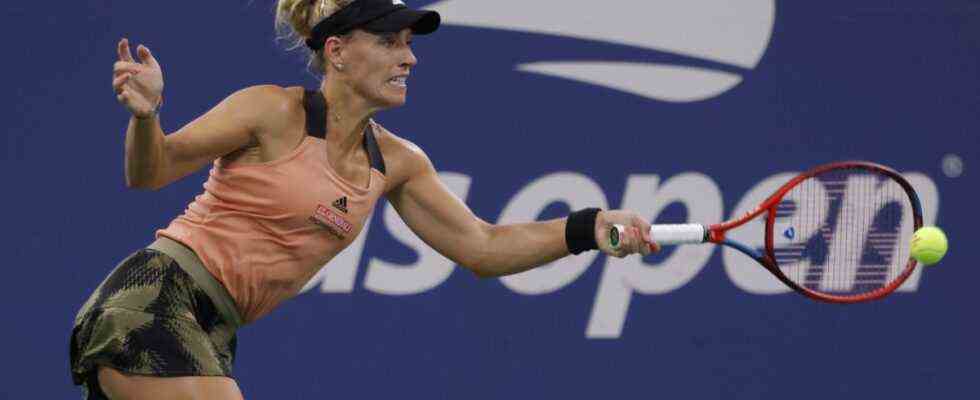Angelique Kerber shook her head in disbelief, then looked over at her coach, Torben Beltz, and looked like she knew this game was over and she wasn’t going to win. I’m sorry, what? Angelique Kerber, the fighter who never gives up, who has already freed herself from the most complicated situations in Houdini-style, was sure that there wasn’t much going on in this game against the only 18-year-old Leylah Fernandez from Canada? Well, Fernandez had earned a match point, so Kerber’s analysis was correct – not only because of the score, but also because of the opponent’s style of play.
In the previous round, she had already defeated Naomi Osaka (Japan), winner of the US Open tournaments in 2018 and 2020. Then she was asked when she believed she could beat Osaka; her answer: “When I came to the square.” She believed in herself, even against Kerber, in the end she won a terrific and exciting game 4: 6, 7: 6 (5), 6: 2, and to be very clear: Kerber did not lose this game, Fernandez she won. “She played with a loose hand, she didn’t have to lose, she was brave,” said Kerber afterwards: “I’ve often won games like this, but then you have to understand when your opponent is better in the few defining points.
Athletes sometimes tell themselves their own strengths
Kerber doesn’t have to grieve despite the defeat. What tipped them off at the US Open, probably since Wimbledon, is the difference between believe and to know. Athletes sometimes tell themselves their own strength, and they have to; Success is easier to achieve when you believe in it. Kerber knows, however, because of her performances since June and also because of the results at the US Open so far, that she can defeat any, really any of the remaining players in the tournament. Even more: she knows that the others know it too. “The respect is back,” she said before the game against Fernandez.
In concrete terms, that means on the pitch: Sometimes it looks as if Kerber’s opponents are playing incredibly badly; as if there was a black hole somewhere that robs them of all talents. They then make seemingly easy mistakes, get nervous, make even easier mistakes, are angry, make grotesque mistakes and at some point completely lose the thread. This black hole, however, is Angelique Kerber – who knows and doesn’t believe. The opponents then know that they have to play the balls just over the net and close to the lines, otherwise they will receive one counterattack after the other. It then looks like a slight mistake, but is ultimately a consequence of the risk that you have to take against Kerber in this form.
On Sunday, however, she played against the disrespectful and fearless (the difference between fear and respect is as big as the difference between believing and knowing) Fernandez, who, because of her youth and this success against Osaka, has not yet used the words “fear” and “respect” in their sports vocabulary. “I was in a frenzy after the win against Osaka – thank God I played doubles yesterday (she won with Erin Routliffe from Australia and is in the round of 16), that grounded me a bit and brought me back to the ground.”
Kerber is disappointed, she won 17 out of 19 games this summer
Fernandez played the way an 18-year-old gifted person plays when she is intoxicated with her own talent – and Alexander Zverev had after the game against Jack Sock the day before (he had made 18 wins in the first set and made only three slight mistakes ) said, which now also applied to Kerber: “If your opponent plays like this, there is nothing you can do.” Or, in numbers: Fernandez scored 102 points against Kerber, 45 resulted from direct winning strokes, 35 more forced Kerber to make a mistake.
Of course, Kerber is disappointed, she had won 17 of 19 games this summer and only lost to Ashleigh Barty (Australia) – who had already been eliminated at the US Open. “I take a lot of positive things with me,” she said afterwards: “I have fun on the pitch and I also see that I can play well and win against the best in the world.” What she should have learned: She mustn’t just believe that she is one of the best in the world. She must know.

